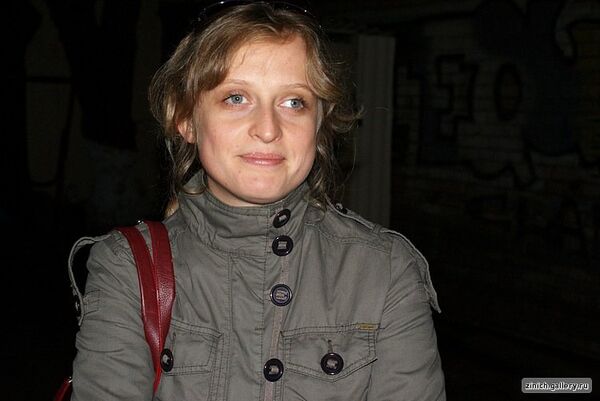Among the people killed at the Domodedovo Airport terrorist attack was a young Ukrainian writer who had come to Moscow to receive a prize for her acclaimed new play, The Pagans.
I first met Anna Mashutina, whom everyone knew by the pen name of Anna Yablonskaya, in Kiev last year. I sat in on a reading of her play Family Scenes. Set in modern-day Ukraine, the play centred on the life of a desperate woman, her post-traumatic stress-stricken warrior husband, their little son and the woman’s lover.
There was a discussion after the reading, and some obnoxious guy would not shut up about how Anna had “unfairly portrayed a military officer," as if showing a soldier suffering from the psychological wounds of war was disrespectful.
“I am listening to you and I hear you,” Anna responded to the obnoxious guy. She wasn’t defensive - she was very open, even vulnerable. Later in the evening she said, “I’m just honored to be included among the grown-up playwrights,” referencing her contemporaries. As if anyone had any doubt that this was exactly where she belonged.
Anna was an emotional and deep person, and this translated into her writing. The last play of hers to be introduced to the public, The Pagans, is threaded with the kind of humor and humanism that’s rare among modern playwrights discussing religion. At last year’s Lyubimovka Festival in Moscow, Anna went up on stage following a reading of The Pagans, and easily spoke about what embarrassed her in her own work. As if she needed to be embarrassed for anything.
People never got tired of commenting on what a rare beauty Anna was, with her Rapunzel hair and a slight lazy eye that made her even more adorable. At September’s Lyubimovka, she still wore her summer tan, which didn’t fade even under the stage lights. I’ll never forget the way Anna looked on the night after her reading. The asphalt outside was still radiating the day’s warmth when we exited Teatr.doc, and the same warmth was reflected on Anna’s luminous face. In spite of the criticism she levelled at herself, the reading of her play, staged by Olga Lysak, had been an undeniable success.
The other thing people liked to say about Anna was that “she is not of this world.” It was true to an extent. As a successful playwright, a wife and a mother to a three-year-old girl she adored, she certainly belonged to this world. But there was also something transcendent about Anna - about the way she spoke and wrote, about how she seemed to be intently staring beyond the physical surface of things.
“It seems to me that I have very little left,” Anna wrote on her blog about a month ago. When I read that one-liner of a post, I had the urge to write to her. “Are you OK?” I wanted to ask. “Is there anything you’d like to talk about? I loved The Pagans by the way - did I forget to tell you?”
“She doesn’t need your stupid concern,” I told myself in the next minute. “Don’t get all up in her business. You’ll have time to talk to her later.”
It turns out that Anna was right and I was wrong. Time was what the people who loved and admired her no longer had. Anna died in the January 24 bombings at Moscow’s Domodedovo Airport, having flown in from Odessa, Ukraine, to receive an award. She was 29 years old.
In my mind, I keep coming back to that character from Anna’s play, the soldier with post-traumatic stress disorder. War refused to end for him. Whether in his head our outside it, it wouldn’t let go.
That’s the nature of war, I guess. Even when it’s not coming through the windows and doors, it finds it way into the phone. When that phone rings, the person on the other end of the line tells you that your friend is dead.
Anna was an extraordinary person, an innocent among the other innocents who were killed, or else had their lives irrevocably changed. I have no answers following her death. Just questions. Didn’t she deserve better, for example? Don’t all of us, as human beings, deserve better?
****
Anna Grigoriyevna Mashutina (Yablonskaya) was born in Odessa into the family of journalist Gregory Yablonsky on July 20, 1981.
She wrote 13 plays, all in Russian, including Bermuda Square, Video Camera, Somewhere and Around and Mono-Dialogues, and her work had been nominated for various international awards. Her play The Pagans is scheduled for a public reading at London's Royal Court Theatre in April.
Anna became a poet and playwright after studying law, and she also worked in marketing, public relations and journalism.
She died at Domodedovo on 24 January, 2011. She is survived by her husband, Artyom Mashutin, a manager at an international freight company, and Masha, their three-year-old daughter.
This comment first appeared on The Moscow News.



